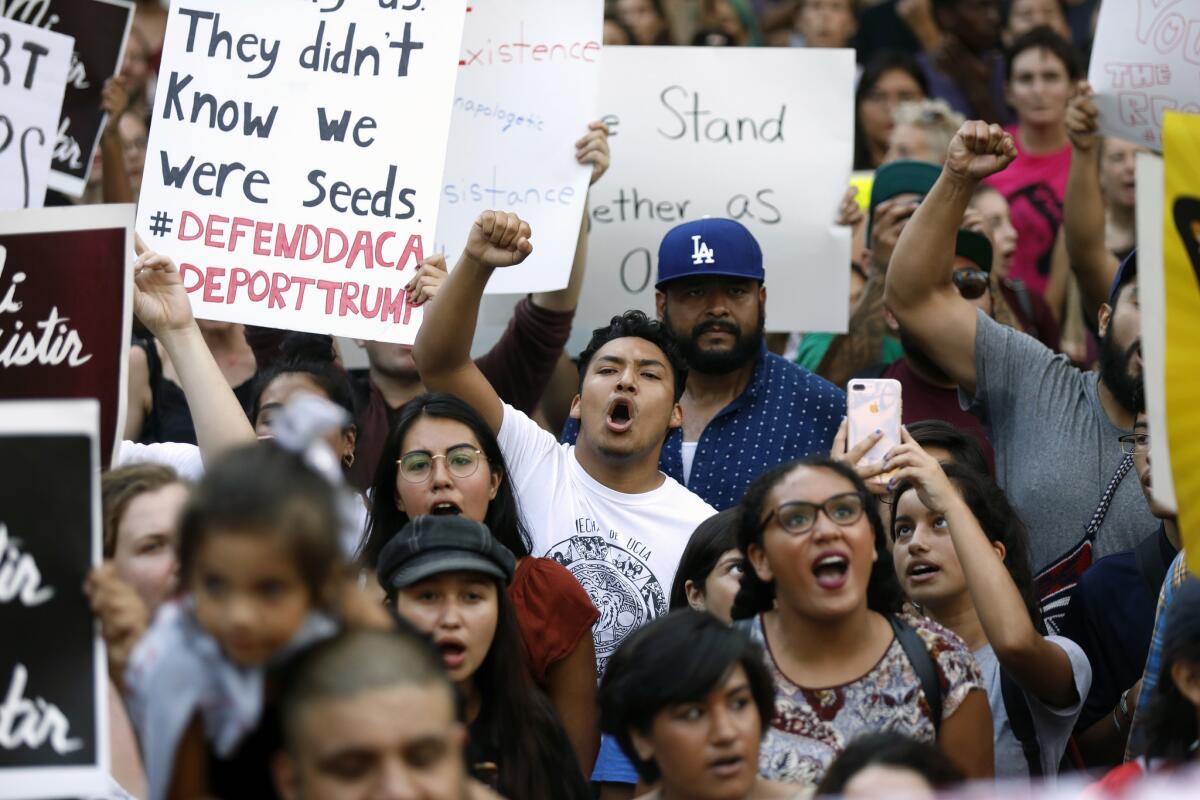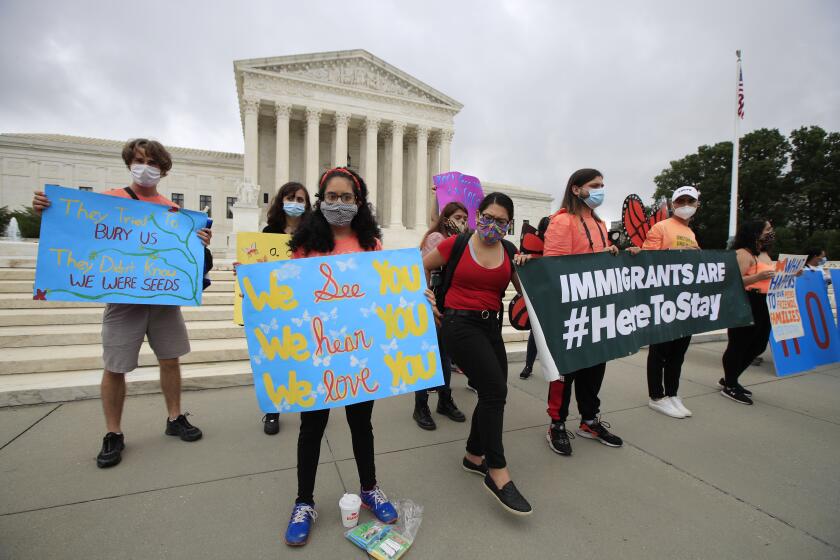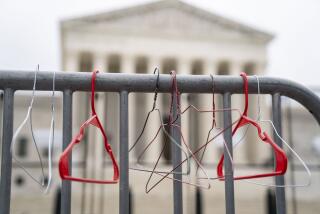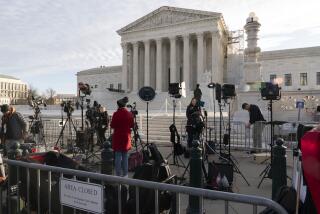Op-Ed: The Supreme Court’s DACA decision shows we still have an independent judiciary

Now, 15 years into his tenure as chief justice, we can say the Supreme Court is truly the Roberts Court. For the second time this week, Chief Justice John G. Roberts Jr. ruled against the Trump administration in a landmark decision for human rights.
On Monday, Roberts was part of a six-justice majority holding that employment discrimination against gay, lesbian and transgender individuals violates federal law. On Thursday, Chief Justice Roberts wrote the opinion for the court holding that President Trump’s Department of Homeland Security violated federal law when it rescinded the Deferred Action for Childhood Arrivals program.
The DACA program, created by President Barack Obama, has allowed many individuals brought to the United States before age 16 to qualify for deferred deportation status. To qualify, applicants have to be in school, have graduated from high school, or be serving in the military or honorably discharged from service. They cannot have had a conviction for a felony or a serious misdemeanor, and the status must be renewed every two years.
Those covered by DACA are still considered to be in the country illegally, but they do not need to fear being deported during this time and are eligible for work permits. There are many of these so-called Dreamers in my law school and in other programs at UC Berkeley.
After at first expressing support for Dreamers, Trump chose to repeal the program as part of his strong anti-immigrant policies. His justification for that action was a contention that it had been illegal for President Obama to create it. But it clearly was legal given the broad power accorded to the president in the area of immigration, power that Trump has used more than any other president in American history.
In one sense, the court’s DACA decision should not be a surprise. Every lower court to consider the issue concluded that the administration had violated the federal Administrative Procedures Act in rescinding DACA. That act requires that there be an articulated, legitimate justification for an administrative action. Last June, the court, again in an opinion by Chief Justice Roberts, ruled that the Trump administration violated this law when it decided to add a question about citizenship to the 2020 census forms. The court concluded that there was no articulated, legitimate reason for this action.
Several DACA recipients tell us about how the program has changed their lives and what it’s meant to their community.
Chief Justice Roberts’ opinion invalidating the rescission of DACA followed exactly the same reasoning and held that the Trump administration did not lay out a legitimate reason for ending DACA for more than 700,000 individuals receiving its protections. The court concluded that the action was “arbitrary and capricious” in violation of federal law.
But in another sense, Thursday’s decision was a huge surprise, as was the court’s decision on Monday providing protection from employment discrimination against gay, lesbian and transgender individuals. Our country is more deeply polarized politically than at any time since Reconstruction and the Civil War. Issues like immigration and LGBTQ rights are at the heart of that division.
We have come to expect that the justices on the Supreme Court will vote in a way that reflects that political polarization. For the most part, that has been true, including for Roberts. Although he was the key fifth vote to uphold the Affordable Care Act, it also must be remembered that he authored the opinion to gut the Voting Rights Act of 1965 and bitterly dissented when the court struck down laws prohibiting same-sex marriage.
This week’s decisions, rejecting the Trump administration’s narrow view of employment discrimination law and striking down the rescission of DACA, shows a court — and especially a chief justice — willing to transcend the partisan divide and uphold the rule of law. This is enormously important when we have an administration that is less concerned about the Constitution and the law than any in memory.
Most of all, though, the decisions should be celebrated for their impact on people’s lives. Monday’s decision means that gay, lesbian and transgender individuals in virtually every workplace in America are protected from discrimination. Thursday’s decision means that 700,000 individuals — people who were brought to this country as children — do not need to fear immediate deportation to countries where many don’t remember ever living.
The fate of these individuals is still uncertain. Their DACA status lasts only two years without renewal, and under the Supreme Court’s decision, a very narrow ruling focused on procedural violations, President Trump can try again to rescind DACA, this time by articulating better reasons. Ultimately, it is for Congress to solve this for Dreamers by providing them with a path to permanent status and citizenship.
But for today, we should celebrate this decision and its affirmation that, even in these deeply divided times, we have an independent judiciary that will stand up to the president. After 15 years as Chief Justice, John Roberts has powerfully demonstrated his commitment to the rule of law and that, too, should be celebrated.
Erwin Chemerinsky is dean of the UC Berkeley School of Law and a contributing writer to Opinion.
More to Read
A cure for the common opinion
Get thought-provoking perspectives with our weekly newsletter.
You may occasionally receive promotional content from the Los Angeles Times.







